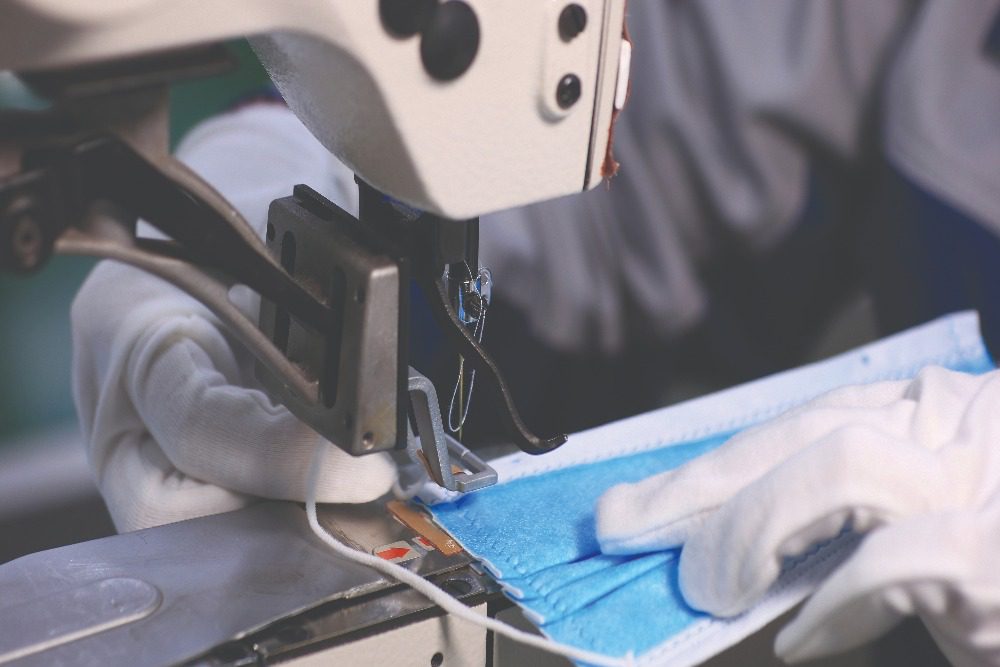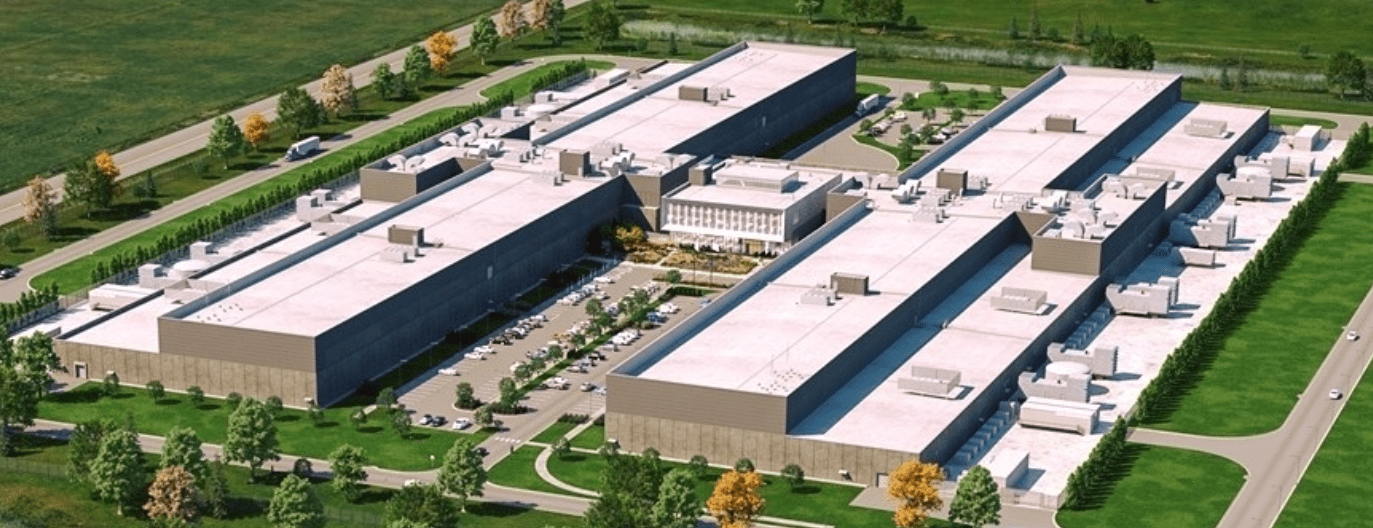While several Midwest cities have been hit hard by the pandemic and civil unrest in recent months, there’s growing optimism about the future. Many states are seeing job growth back on the upswing as manufacturing, tech and life sciences continue to thrive in the region.
#5 Indiana: Holding Steady in the Hoosier State
The Hoosier State is counting on momentum to help push it through the pandemic. While small businesses have held strong, manufacturing and the RV industry experienced a boost in recent months, says Indiana Secretary of Commerce Jim Schellinger. Between January and September, 187 companies announced plans for more than 20,000 new jobs and $3.1 billion in investment. “Indiana’s economy was never ‘closed,’” Schellinger says. “Things have slowed down in some sectors and we’ve certainly had to adjust but we’ve continued to see economic momentum this year.”

At the start of the pandemic, the IEDC looked to the state’s manufacturing strength and partly transformed into a PPE procurement agency. It partnered with 18 Indiana companies to manufacture and distribute 38 million pieces of PPE, Schellinger says. IEDC also created a critical infrastructure hotline to help businesses navigate the Stay at Home order and subsequent reopening.
That momentum led to several new projects. Mission Foods announced in August a new state-of-the-art manufacturing facility and 544 jobs in Plainfield. Palmer Trucks announced 220 new jobs and a $17 million expansion of its facilities in the Indianapolis area. Subaru is also planning a $158 million expansion of its plant in Lafayette. “Overall, we continue to secure commitments from companies in multiple sectors,” Schellinger says.
#9 Ohio: Building Back in the Buckeye State
At the start of the pandemic in March, Ohio’s state government and JobsOhio authorized up to $500 million to establish a unique and targeted portfolio of economic development programs under the umbrella of “Ohio Safe, Ohio Working.” JobsOhio has since constructed 10 new specialized programs, investing up to $250 million in initiatives that impact over 15,000 Ohio businesses and 300,000 workers.
Sectors such as automotive, logistics and distribution, IT and agribusiness all experienced moderate growth recently. In January, Hitachi Healthcare announced a new R&D facility and 40 jobs at its North American headquarters in Twinsburg.
Carvana announced in August 2020 a $23 million expansion and 400 new jobs in Elyria. Colgate-Palmolive announced in September a $1.2 million expansion and 24 new jobs at its operations in Cambridge. “We are showing the country how we have mobilized and worked together during a time of crisis,” says JP Nauseef, CEO of JobsOhio.
#13 Michigan: Planning and Manufacturing a Post-Covid Future
Short-term relief efforts and a new five-year strategic plan helped jumpstart the state’s economy, says Mark Burton, CEO of the Michigan Economic Development Corporation. The strategic plan emphasizes attraction efforts in industries where it has a distinct competitive advantage—such as auto manufacturing, mobility research, engineering and design, advanced manufacturing and tech. “We also prioritize pathway jobs to ensure a broader segment of Michiganders have access to high-wage growth opportunities,” Burton says.
Manufacturing is one sector that experienced strong growth and attracted several notable expansions and investments. Automotive supplier Magna International announced in June a $35 million expansion that will create 480 jobs in Highland Park.
Bridgewater Interiors announced in July a $15 million expansion and 400 new jobs in Detroit. And in August, Detroit Manufacturing Systems announced a $31 million investment that will create 225 jobs. “Michiganders are proving that by leaning into what we do best as innovators, designers and builders, we can provide access to the goods, services and care that our state and country need as we begin re-engaging our businesses and communities toward long-term economic recovery,” says Burton.
The state jumped 19 spots in Chief Executive’s 2020 Best & Worst States for Business—the largest jump in the ranking’s history—which was attributed to growing access to industrial and technical talent.
#15 Wisconsin: Innovating a New Economy
Badger State manufacturers responded to the pandemic by shifting focus to new market needs. Exact Sciences, a cancer diagnostics company based in Dane County, refocused equipment that looks for DNA associated with colorectal cancer to look for coronavirus. By May, the company had helped the state reach 85,000 tests per week, and by August the concept had approval from the FDA for home collection kits.

The state’s $18.2 billion paper industry also shifted to producing masks, while breweries and other companies started making sanitizer. “We’ve seen a lot of innovation in the past six months from both larger and smaller companies. We’re really reflecting on that and seeing how we can use that to innovate in our next economy. It’s fascinating to watch,” says Missy Hughes, CEO of the Wisconsin Economic Development Corporation.
#20 Missouri: Show Me Strength
Missouri’s “Show Me Strong” recovery plan aims to balance public health and safety with economic goals. Initiatives and incentives include a small business grant program and an online business recovery platform.
Tooling Tech Group, the second-largest tooling provider in the U.S., announced in May a $4.5 million expansion in Washington.
Chewy announced in July an 800,000 square-foot distribution center and 1,200 new jobs in Belton. That same month, Armstrong World Industries also announced an $8 million expansion of its architectural components group and 130 new jobs in Marshfield. Accenture Federal Services (AFS) plans to open an Advanced Technology Center and create 1,400 jobs in St. Louis. AFS CEO John Goodman attributed the decision to the region’s “skilled talent, vibrant technology ecosystem and strong commitment to collaboration between government, civic, business, academic and community partners.”
#21 Iowa: Using A Reset To Find A Brighter Future
The economic momentum Des Moines cultivated over the past decade is paying off. Moody’s Analytics examined the country’s top 100 metro areas in July 2020 and noted the region as one of those best positioned for a quick recovery, citing its educated workforce and the large number of residents working in jobs that can be performed remotely.
The region also experienced growth in the logistics industry and pandemic, since disruption forced many American companies to reconsider their supply chains. Des Moines’ central location offers access to four rail lines, two interstates and an international airport. “The pandemic has created an opportunity for a great reset and for everyone to take a step back as they consider the next normal,” says Jay Byers, CEO of the Greater Des Moines Partnership. “Here in DSM… we’re really looking at the strategic investments we need to make in the future and what things we can collectively do better as a region.”
#24 South Dakota: Always Open For Business

South Dakota made the controversial decision to remain open in March to stave off mass failures of small businesses. As a result, the recovery has been stronger and South Dakota has the fewest low-income job losses of any state in the region, according to the Minneapolis Federal Reserve. An aggressive new ad campaign aims to increase business recruitment to the state.
Economic development officials note strong growth in the number of businesses interested in moving to the state since the pandemic. “Right now, Governor Noem is unquestionably our biggest marketing tool,” said Steve Westra, commissioner of the South Dakota Governor’s Office of Economic Development. “The national exposure she has received for how South Dakota handled Covid-19 really resonates with business owners.”
#28 Nebraska: Relying On Resiliency
Now more than ever, the Cornhusker State is counting on its resiliency as a means to carry it through the pandemic, says Anthony Goies, director of the Nebraska Department of Economic Development. The state currently holds one of the lowest unemployment rates in the nation and experienced the lowest rate of GDP contraction during Q1 2020. Goines attributes the state’s resiliency to a diverse economy based on sectors like food production, manufacturing, tech and healthcare. “Couple that with a comparatively low reliance on tourism, and you can begin to see why we have been less severely impacted than many other states,” he says.
Since the start of the pandemic, Nebraska has received more than $1.25 billion in federal coronavirus relief dollars, much of which it used to launch small business grant programs, reskill displaced workers, and promote new work and education opportunities. The department’s goal isn’t simply to return the state economy to normal, but to exceed the baseline and promote future growth and opportunities, Goines says. “The benefit of living in a safe state where you have natural social distancing on top of a strong economy and a great quality of life where everyone is welcome, have become even more apparent,” Goies says.
#29 North Dakota: Promoting The Peace Garden State
With a low population density, North Dakota was one of the few states that staved off an economic hit by opting not to shut down during the pandemic, says James Leiman, director of the North Dakota Department of Commerce. “That, combined with the front-end public private grant partnerships we’re creating, has given us confidence as we move into the colder months.”
North Dakota is now taking the opportunity to reinvent itself with a “next gen economy,” he says. The biotech and tech industries have experienced strong growth in the state. Leading antibody innovator Aldevron continues to drive a biotech cluster in Fargo and expanding its global headquarters in the city. “What is a short-term pain will become a long-term gain as we learn to improve on the post-Covid world,” Leiman says.
#31 Kansas: Doubling Down On Development
While the pandemic presented challenges, it also amplified emerging opportunities for Kansas, says Secretary of Commerce David Toland. Kansas’ central location, combined with its skilled workforce and reliable infrastructure, increased its viability in industries such as food, agriculture, logistics, manufacturing and animal health. Greater centralization of supply chains also made the state more attractive, Toland says. “For Kansas that means opportunities for rapid growth in logistics, distribution, inventory manage, manufacturing, transportation and more. “
Several companies have announced expansions in the state, including Merck & Co., Urban Outfitters, Schwan’s, Great Plains Manufacturing and Bell Textron.
The newly launched Kansas Framework for Growth is now integrating the impact and outlook of the pandemic and is the first comprehensive plan to align a state’s economic development approach with the “new normal.”
#33 Minnesota: New Opportunities Found in the Challenges
Following a big hit in the spring, business activity is on the rise in Minnesota, says Steve Grove, commissioner of the department of employment and economic development. The state’s unemployment rate fell from 8.6 percent to 7.7 percent between June and July, and business filings in the state are up 22 percent compared to this period in 2019. “We have added new jobs in the past few months,” Gove says. “Companies are hiring.”
Medtech company Maple Grove announced an expansion and 185 new jobs at its facility in Plymouth. Pace Dairy announced an expansion of its operations and 20 new jobs in Rochester. In July 2020, Eastman Kodak unveiled a $765 million expansion of its operations and 60 new jobs in St. Paul.
The state is also turning an eye to retraining for workers whose jobs aren’t expected to return. “Reskilling and retraining for employees that may have to find a new career is a big area of focus for us,” Grove says.
#48 Illinois: Digging In the Data
A data center incentive Illinois passed in 2019 that exempts data centers and occupants from state and local sales taxes on equipment purchases is starting to bear fruit. The new incentive, combined with its infrastructure, central location and access to a large population, led Chicago to experience the sixth-most data center activity in the first half of 2020, according to the latest North American Data Center Trends Report by CBRE. In June 2020, Facebook announced an $800 million investment in a new data center in DeKalb that will create 100 jobs. It will be the company’s 12th data center in the U.S. and one of the largest in Illinois.

In June, Gov. Pritzker announced a $900 million package of equity-driven community and business grant programs that includes business interruption grants and distressed capital programs aimed at mitigating “this virus’s devastating effects on the health and livelihoods of the residents of this state. “We must do so in a way that prioritizes those who were hurting long before we’d ever heard of Covid-19,” Pritzker said in a press release.

Chief Executive Group exists to improve the performance of U.S. CEOs, senior executives and public-company directors, helping you grow your companies, build your communities and strengthen society. Learn more at chiefexecutivegroup.com.
0

1:00 - 5:00 pm
Over 70% of Executives Surveyed Agree: Many Strategic Planning Efforts Lack Systematic Approach Tips for Enhancing Your Strategic Planning Process
Executives expressed frustration with their current strategic planning process. Issues include:
Steve Rutan and Denise Harrison have put together an afternoon workshop that will provide the tools you need to address these concerns. They have worked with hundreds of executives to develop a systematic approach that will enable your team to make better decisions during strategic planning. Steve and Denise will walk you through exercises for prioritizing your lists and steps that will reset and reinvigorate your process. This will be a hands-on workshop that will enable you to think about your business as you use the tools that are being presented. If you are ready for a Strategic Planning tune-up, select this workshop in your registration form. The additional fee of $695 will be added to your total.

2:00 - 5:00 pm
Female leaders face the same issues all leaders do, but they often face additional challenges too. In this peer session, we will facilitate a discussion of best practices and how to overcome common barriers to help women leaders be more effective within and outside their organizations.
Limited space available.

10:30 - 5:00 pm
General’s Retreat at Hermitage Golf Course
Sponsored by UBS
General’s Retreat, built in 1986 with architect Gary Roger Baird, has been voted the “Best Golf Course in Nashville” and is a “must play” when visiting the Nashville, Tennessee area. With the beautiful setting along the Cumberland River, golfers of all capabilities will thoroughly enjoy the golf, scenery and hospitality.
The golf outing fee includes transportation to and from the hotel, greens/cart fees, use of practice facilities, and boxed lunch. The bus will leave the hotel at 10:30 am for a noon shotgun start and return to the hotel after the cocktail reception following the completion of the round.